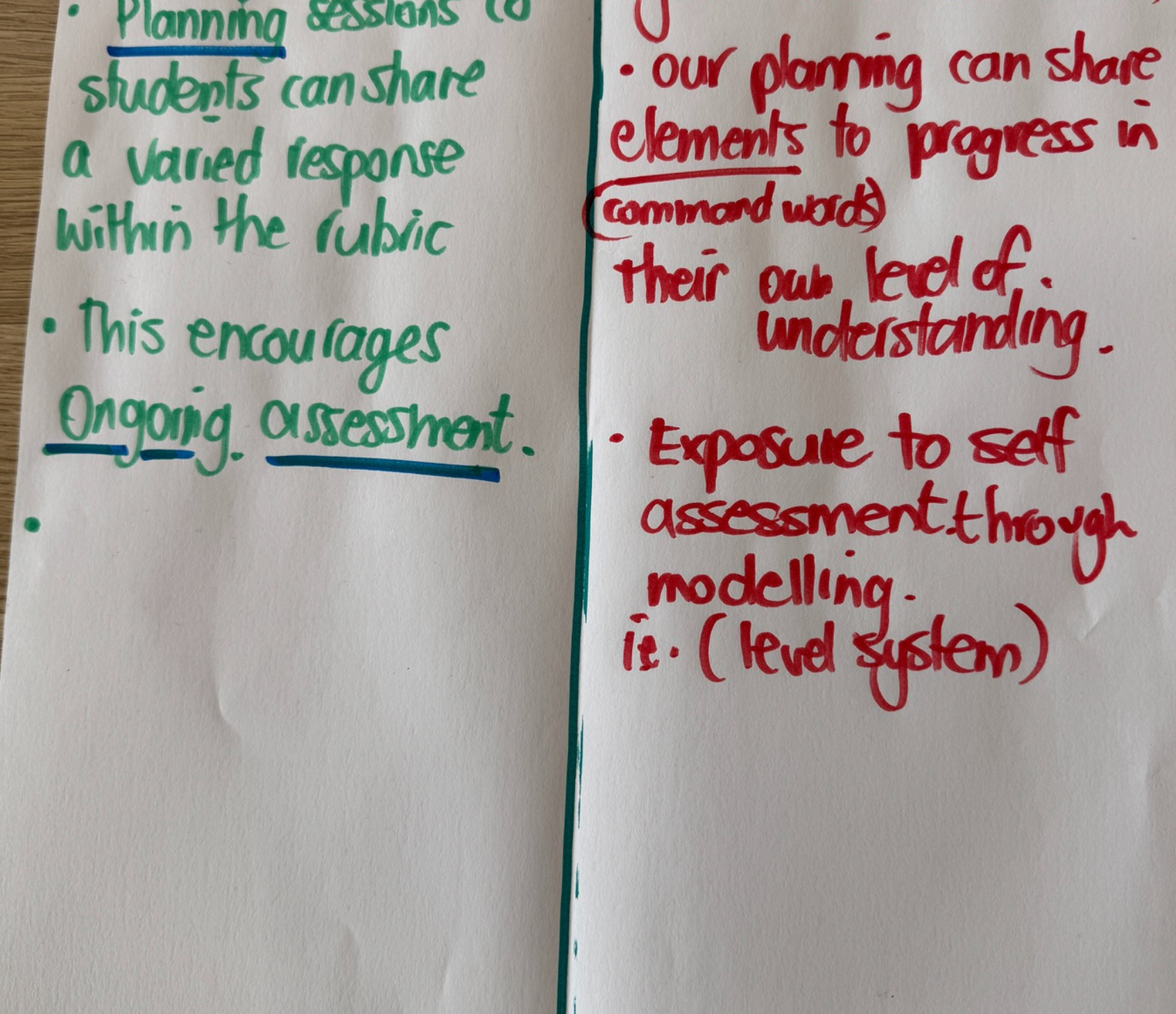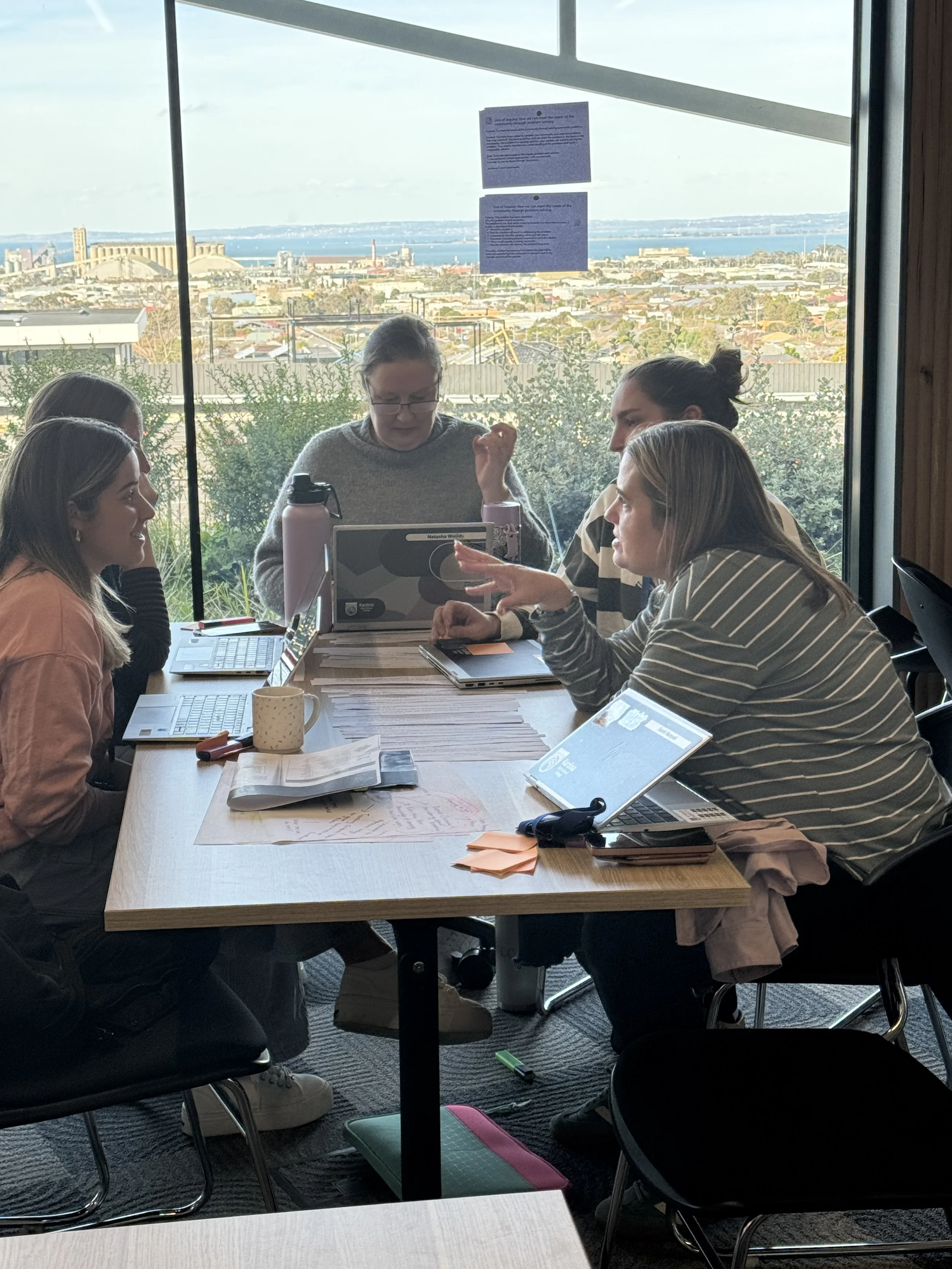Learning in Partnership: Stories from Schools Kardinia International College
August 11, 2025 | Written by Tania Lattanzio
Celebrating authentic partnerships that shape meaningful learning.
This post is part of a series highlighting stories from schools I’ve had the privilege of partnering with, exploring how collaboration has led to deeper learning and meaningful change.
Kardinia International College
Bringing Assessment to Life: A Special Partnership with Kardinia International College
Over the past three years, I’ve had the absolute privilege of partnering with the inspiring educators at Kardinia International College. What began as a focus on planning units with stronger conceptual clarity and inquiry has evolved into a whole-school shift in how learning, teaching, and assessment come together to make understanding visible.
In the early stages of our work, the goal was to refine unit planning so that learning was anchored in big ideas and transferable concepts. Teachers began designing learning that invited curiosity, challenged students to think deeply, and promoted a culture of meaning making. From there, we naturally shifted our attention to the role of assessment, not as an end point, but as an ongoing, integral part of the learning journey.
This led to the introduction and development of the Rubrics for Understanding, A tool that helps students, teachers, and families make sense of what it means to develop understanding over time. These rubrics are developmental, not judgmental. They clarify expectations, support formative feedback, and guide reflection and dialogue.
What has been remarkable is how these tools have become embedded across the school. Teachers are now using continuous assessment tools to make learning visible in real and practical ways. The rubrics allow students to see where they are in their thinking, where they’ve come from, and where they are heading. They give teachers the ability to track the development of understanding over time, enabling more targeted feedback and more responsive planning. Assessment is no longer about checking off what’s been taught, it’s about engaging with where learners are and adjusting accordingly.
Image: Mentoring and Coaching at Kardinia International College
Importantly, parents now have a clearer understanding of where their children are in their learning, what progress looks like, and how they can support from home. This shared language has also strengthened reporting practices, making them more meaningful and connected to learning rather than just a summary of a performance task. Students, too, have become more actively involved. They can talk about their learning with greater clarity and identify where they are in their journey.
A key milestone in our partnership was the shift from planning for students to planning in response to students. Teachers now use the rubrics not only to assess, but to guide their next steps. Learning engagements are designed intentionally to build understanding, not just to cover content. It’s responsive, reflective, and centred on student growth.
Most recently, during my visit this year, we explored the idea of authentic assessment through PRACs:
Purpose and Situation
Role
Audience
Criteria
These authentic tasks provide the “So what?” of the learning. Now that I’ve learned this, what will I do with it?
For example:
– How can I promote sustainability in my community?
– How can I create spaces that people connect to?
– How can I design a structure with a purpose?
These tasks give students opportunities to apply their understanding in meaningful ways that reflect not only what they’ve learned, but how they can transfer and apply their learning to authentic contexts. They may be used as final products or embedded throughout the learning journey. They are also flexible enough to ensure student voice and choice.
Through PRACs, students aren’t simply completing work they’re demonstrating their understanding through action. They’re engaging in real tasks with purpose, ownership, and agency. Whether it’s proposing a sustainable solution for their community, collaborating on a design challenge for energy conservation, or surveying peers to propose new school services for a student-led initiative, these engagements bring learning to life and deepen its relevance.
What continues to impress me is the commitment of the Kardinia team, their willingness to challenge their own practice, to collaborate, and to always keep students at the centre. It’s been a true partnership rooted in trust, growth, and shared purpose. I’m incredibly proud of what we’ve accomplished together so far, and I’m genuinely excited to see where the journey leads next.
Thank you to the leadership team in committing to a long term successful partnership Ann Miller, Glenn Evans, Izabella Haby, Nikki Petyanszki and Geoff Geddes.
If you are interested in partnering with me to shape meaningful learning and bring about meaningful and sustainable change, please contact me:




